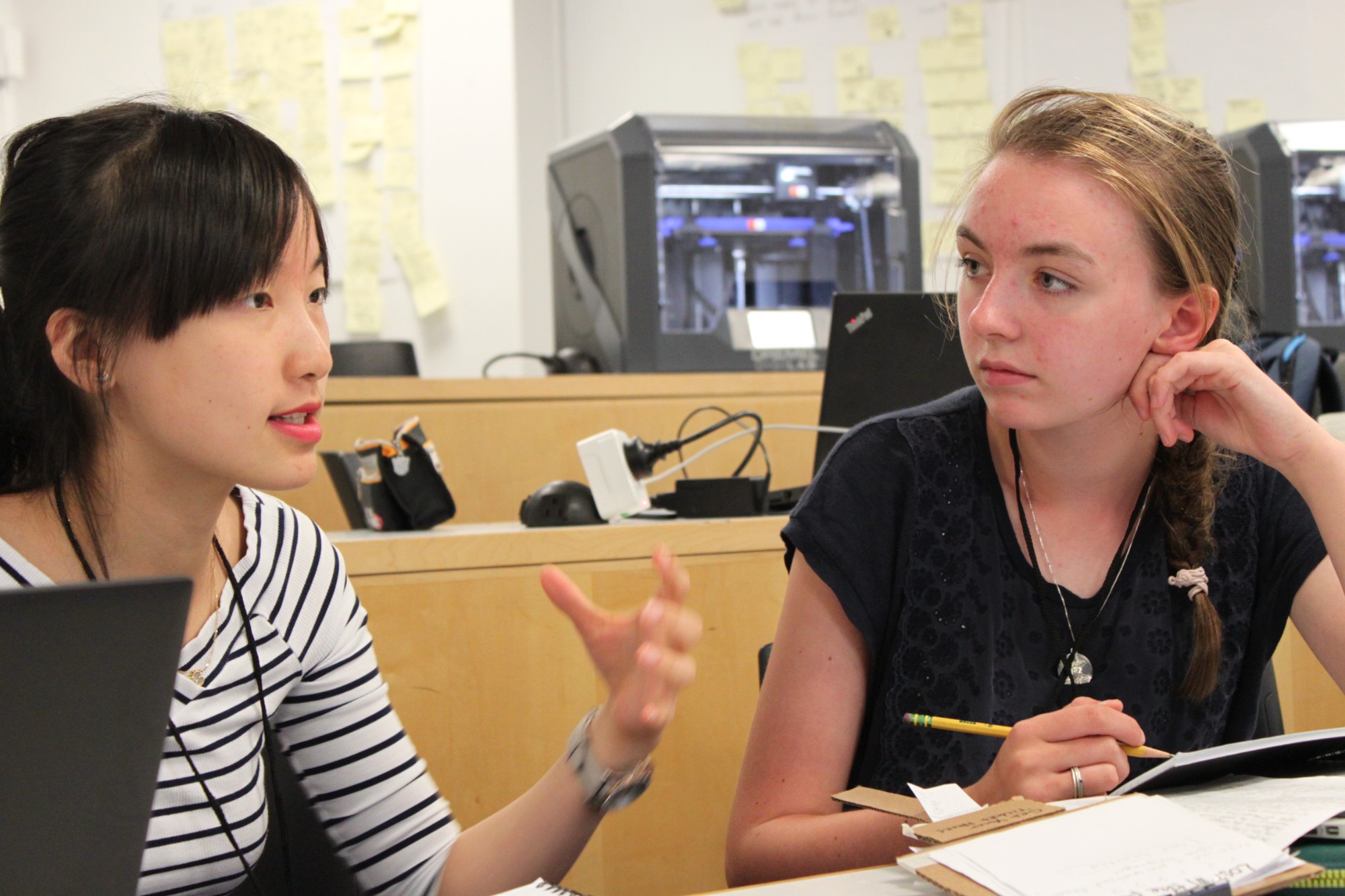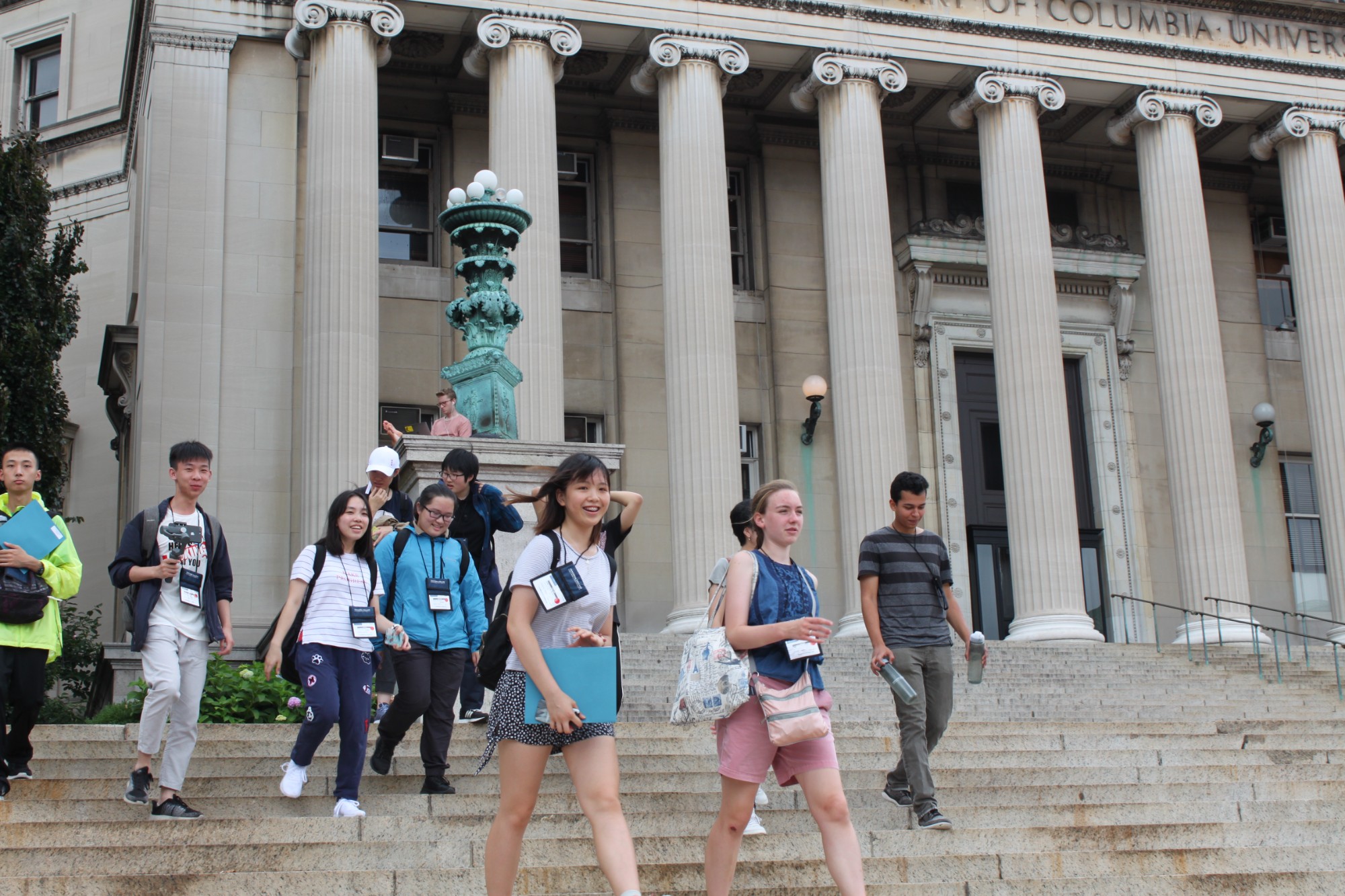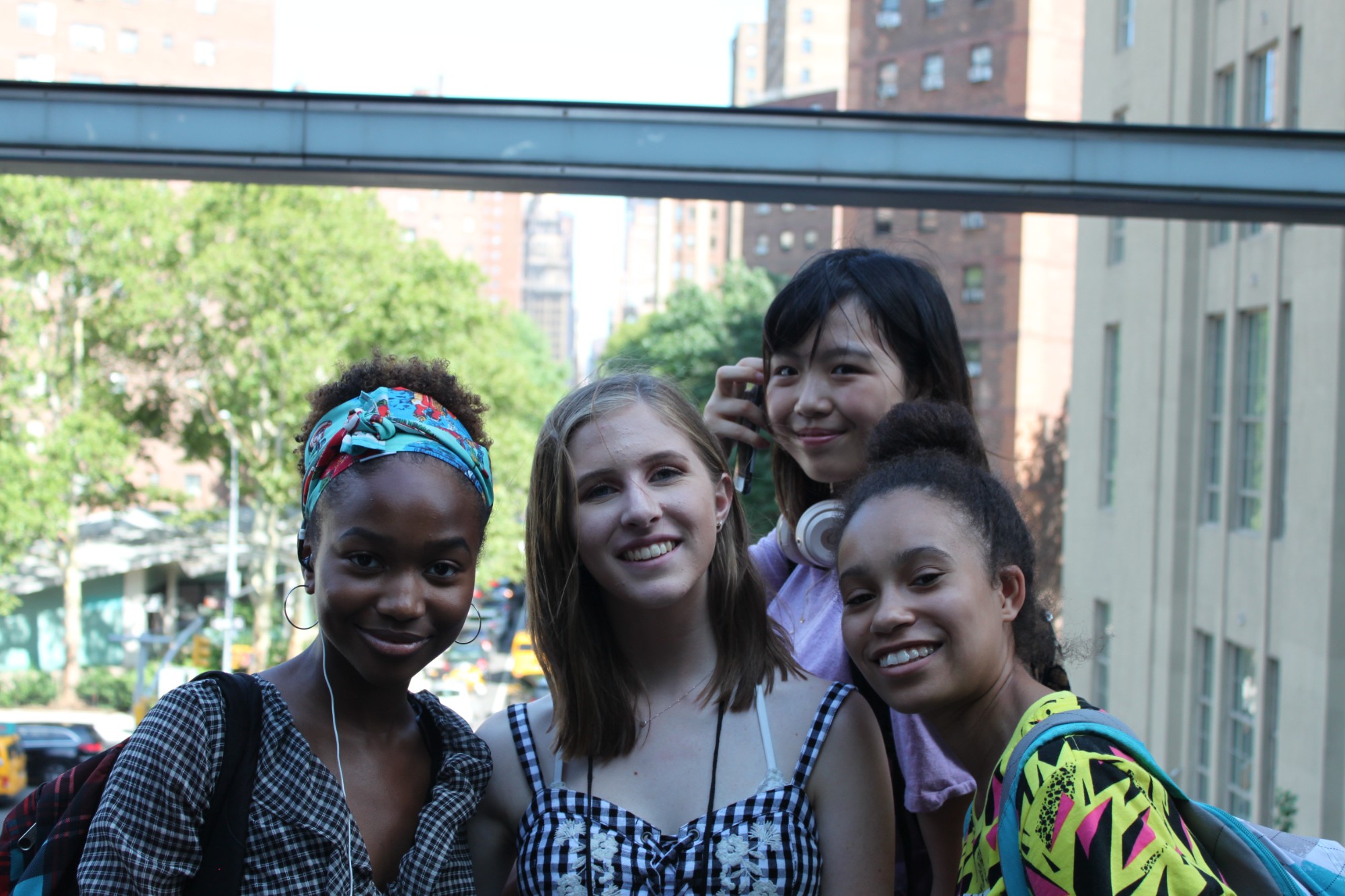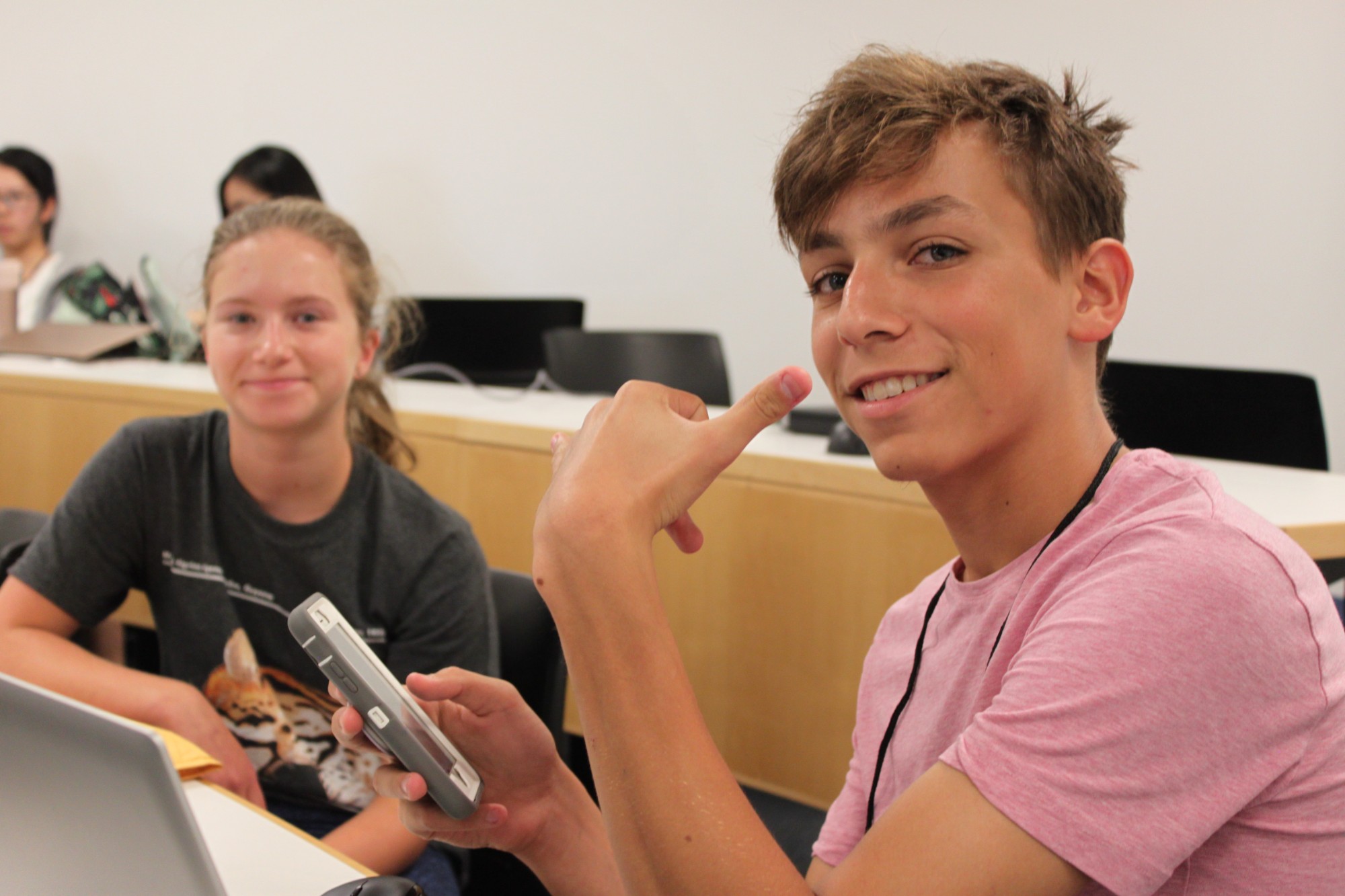The Summer Humanities & Engineering Academy fosters the dispositions of innovators: students are invited to take risks, ask questions, and develop provisional solutions. As students create and exchange new knowledge through reading, writing, and discussion in an academic community, they also design and engineer practical solutions to real environmental problems. The course culminates in a symposium in which students present processes and prototypes that address how we might mitigate the negative effects of human culture on the environment.

Through the two-week course, students read and discuss historical documents, personal and scientific accounts, and imaginative literature that provide context and layers of meaning to New York City’s cultural, literary, and environmental history. By studying classic and contemporary works, students travel to real and imaginary landscapes — local and distant — in which writers stage complex and sometimes volatile interactions between humans and their environments. Place-based texts inform students’ exploration of the specific New York City environments they visit (e.g., Harlem, Times Square, Central Park) and inspire students’ own writing in descriptive, reflective, analytical and imaginative modes.

The Engineering component exposes students to different fields of engineering, while helping them develop practical skills and principles of practice for use in a variety of engineering contexts. Students select from three engineering fields -- web and application design, 3D modeling, or electronics -- and participate in collaborative projects in their chosen field. Students are initially exposed to an overarching problem involving human interaction with the environment and participate in field trips to different parts of the city to investigate genuine questions about the relationship of humans and their environment in the context of each local setting. As students experience the literal spaces of the city, they will simultaneously consider virtual spaces. Through collaboration and the use of design thinking principles, students tackle a problem or concept they have identified through their humanities coursework and field research. Informing their vision through careful observation, interviews with experts, and on the spot surveys, students will work to realize and refine engineering solutions that address their chosen problem or concept.

The Summer Humanities & Engineering Academy was initiated in 2016 by Garrick Yau, Founder and Executive Director of Elite Direction and Dr. Sheridan Blau, Professor of Practice in the English Education Program at TC. Garrick and Dr. Blau decided to build this multidisciplinary summer program that would bring together international and local NYC students to collaborate on advanced academic work. In the summer of 2019, Noah Gordon and Andrew Rejan, two current English Education doctoral candidates, led the design of the course and instruction. Shannon Potts was the camp director over the past two years, and Sheridan McNamara, Jillian Hand, and Kelly Hood (all Master’s students in the EE program at TC), were involved in the summer program as residential advisors.
